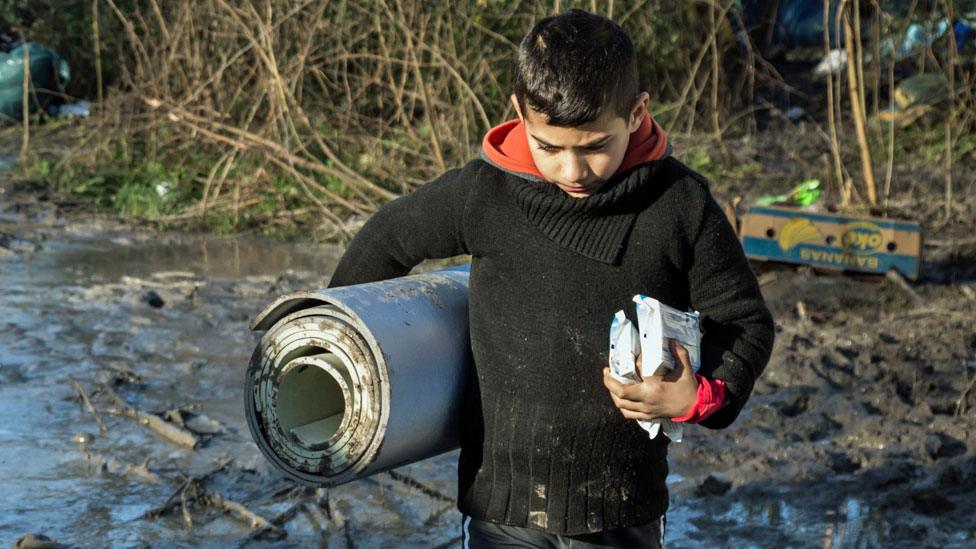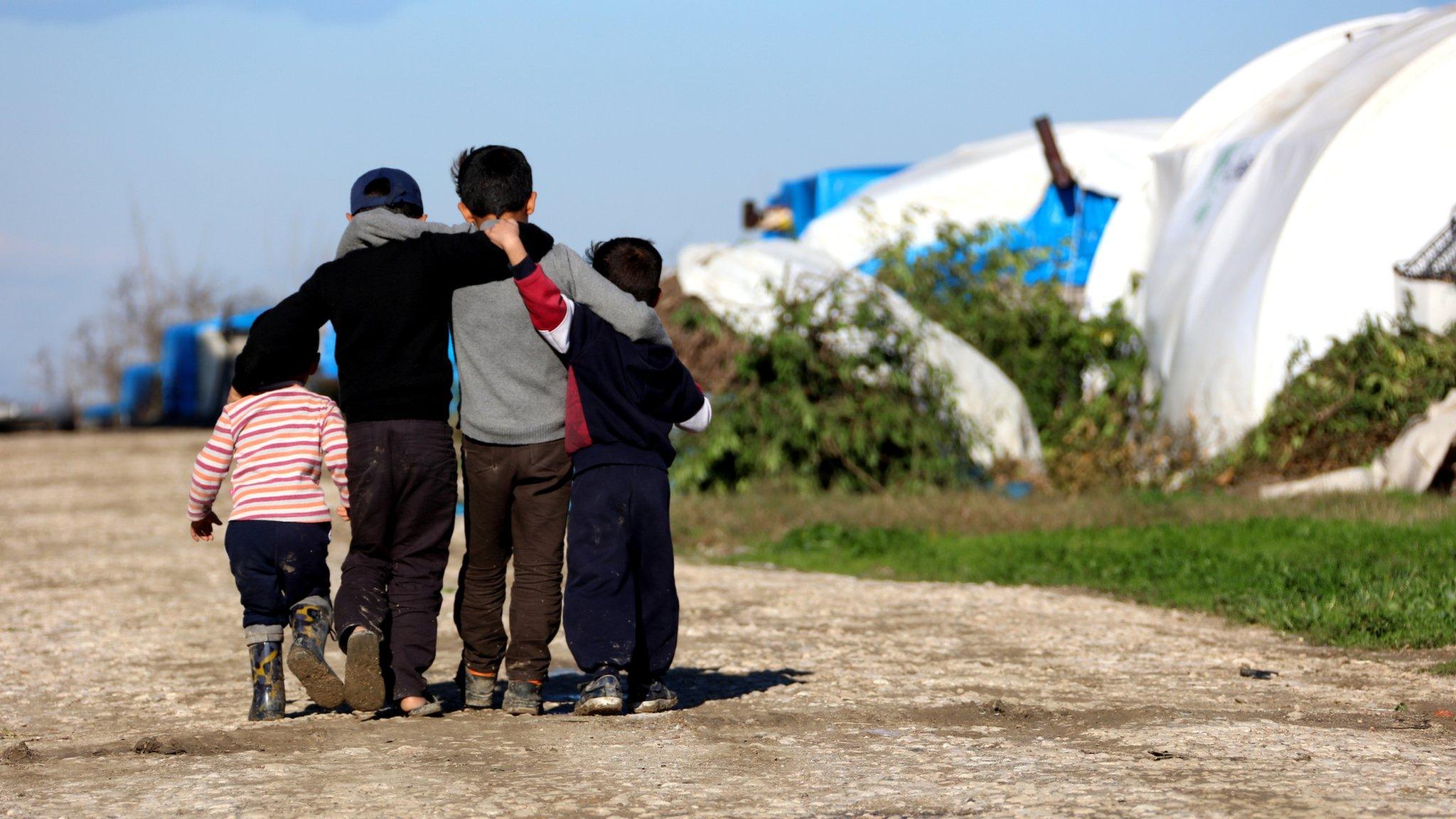Warning over cost of caring for young asylum seekers
- Published

Councils say they are struggling to cope with the cost of young migrants who reach the UK
The cost to councils in England of looking after rising numbers of child asylum seekers has almost doubled in four years, the Local Government Association (LGA) says.
It says the annual cost of providing accommodation and care for these young asylum seekers has now risen to £152m.
And councils, already under financial pressure, need more support from central government, the LGA says.
The Home Office says funding arrangements are "under review".
Local authorities are legally required to care for child asylum seekers without relatives.
Funding gap
But, the LGA says, they will already face a £3.1bn funding gap for children's services by 2025 and cannot be expected to absorb the extra costs of accommodation and support for young asylum seekers.
In 2014-15, they were spending about £78m on caring for about 2,800 young asylum seekers.
But in 2017-18, they were looking after almost 4,500 young asylum seekers, with costs increasing by 95%, to £152m.

Local authorities are obliged to look after young asylum seekers coming to the UK
Local authorities receive some support from central government but they say it is not enough to cover the full costs.
As well as accommodation, councils say they have expenses such as social workers and mental health services.
"Councils have a strong track record supporting those resettling in the UK and are committed to providing the best support possible," said David Simmonds, who chairs the LGA's asylum, migration and refugee task group.
But, he said, given the "significant financial pressures" facing councils, it was becoming "more and more challenging" to provide the services they were legally obliged to.
Mr Simmonds called on the government to announce the findings of a review into funding support for unaccompanied children.
He said it was vital that there was a "joint commitment" between national and local government about adequate levels of funding.
A Home Office spokesman said the government recognised the efforts of councils in providing "care for a significant number of unaccompanied asylum-seeking children".
"We are currently reviewing the funding arrangements and over 50 local authorities have taken part," he said.
"We hope to reach a conclusion soon but it is right that we take time to thoroughly assess the evidence."
- Published25 January 2019

- Published31 December 2018
